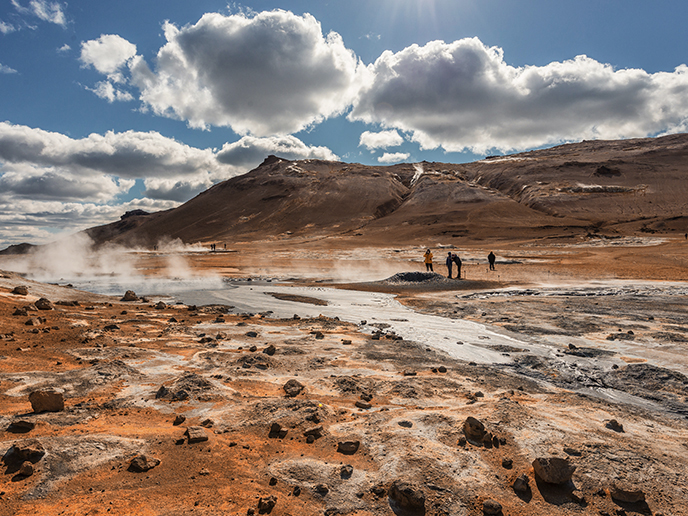Exploring Venus’ surface from planet Earth
The wild and desolate landscapes of Iceland are often described as otherworldly – and that’s exactly what is drawing participants of the EU-funded EPN-2024-RI project. The volcanic terrain of Iceland provides an ideal analogue for Venus, offering researchers the chance to test out instrumentation and better understand the processes that shape the Venusian surface. The EPN-2024-RI project coordinated field trips to the Matis Transnational Access Field Site, one of seven such sites located around the world. These free-to-access field sites provide the most realistic terrestrial geological-geomorphological analogues for volcanic and other climatic and geological conditions, aiding studies in support of planetary exploration – including the European Space Agency’s forthcoming EnVision mission to Venus. EPN-2024-RI assists visiting scientists, planning their field research, choosing appropriate sites and organising the logistics of assessing them, along with providing access to biological laboratories and other research facilities.
Studying Venus’ surface from planet Earth
At the Iceland field site, researchers have access to a multitude of different environments, including glacial and subglacial environments, lava fields of different ages, volcanic areas, and active hydrothermal systems – all of which can be used for astrobiological and planetary research. This summer, the German Aerospace Center’s (DLR) Institute of Planetary Research was at the site to study the composition and origin of the major geologic terrains found on Venus’ surface. To do so, the team used a prototype instrument to characterise lava flows found on the Reykjanes Peninsula. Not only is this an opportunity to test and calibrate the instrument before it takes off for use on Venus, but the research also increases scientists’ understanding of the spectral emissivity data that will be obtained during the EnVision mission.
Positioning Europe at the vanguard of space exploration
In addition to its field sites, the EPN-2024-RI project provides researchers with the infrastructure they need to address the major scientific and technological challenges facing modern planetary science. This includes the world’s largest collection of planetary simulation and analysis facilities, data services and tools linked to the European Open Science Cloud (EOSC), a ground-based observational network, and a range of community support activities and networking opportunities. Led by the University of Kent, the project currently has over 50 beneficiary institutions from 24 countries in Europe and around the world, with an additional 44 affiliated partners. The project draws on the resources of the Europlanet Society to disseminate activities and outcomes, develop a more diverse community of users, and – most importantly – ensure Europe’s position at the vanguard of space exploration.
Keywords
EPN-2024-RI, Venus, Iceland, Europlanet Society, planetary exploration, planetary science, European Space Agency, EnVision mission, planetary research, space, space exploration, European Open Science Cloud



